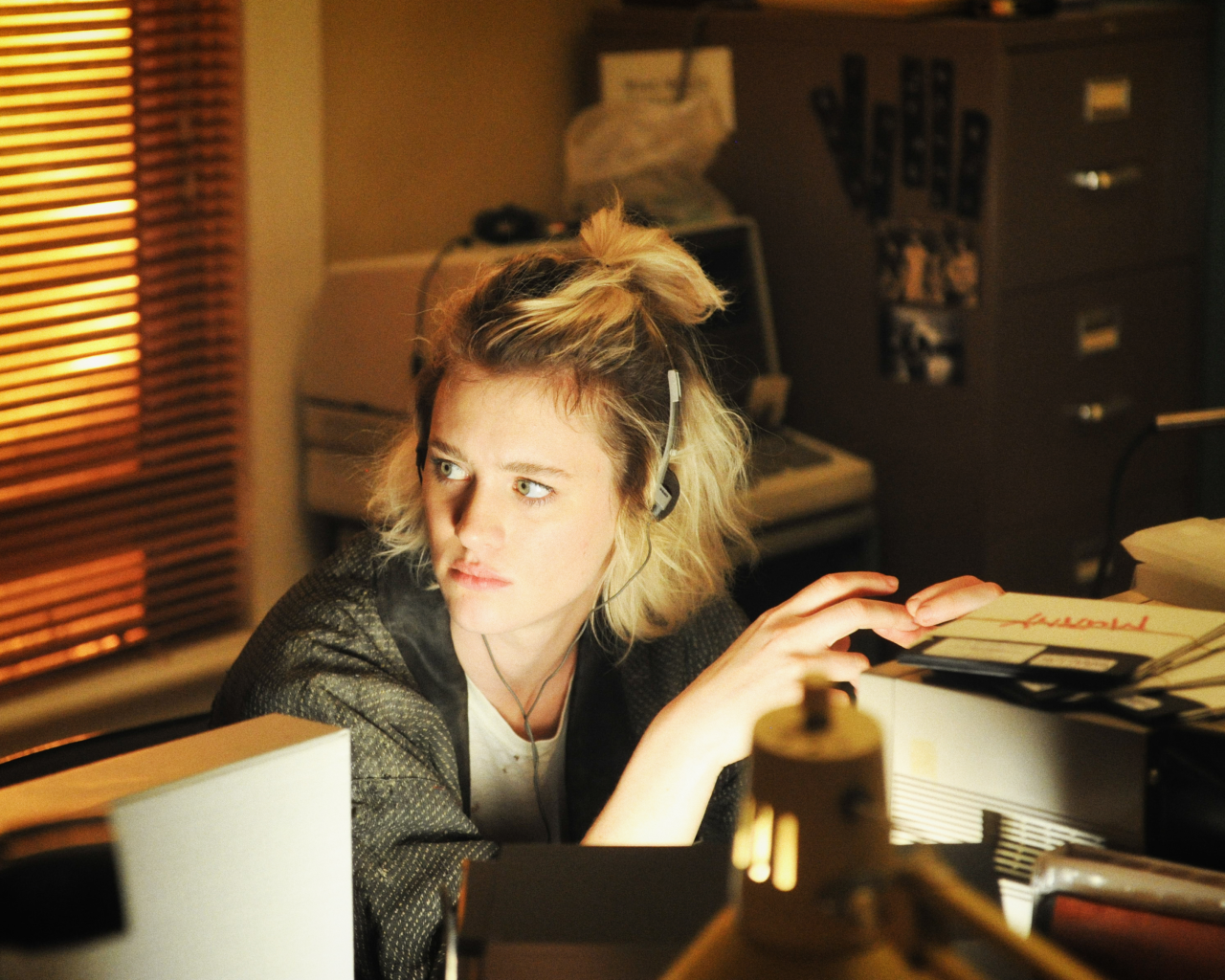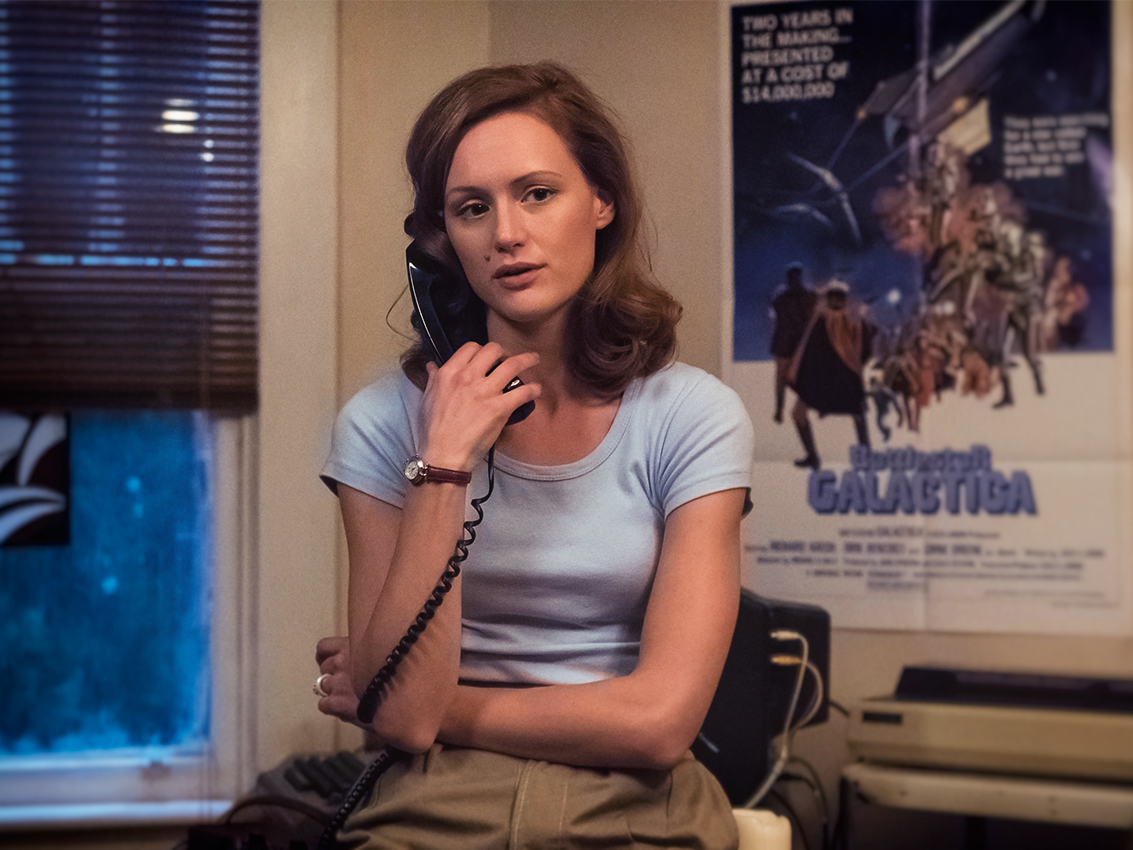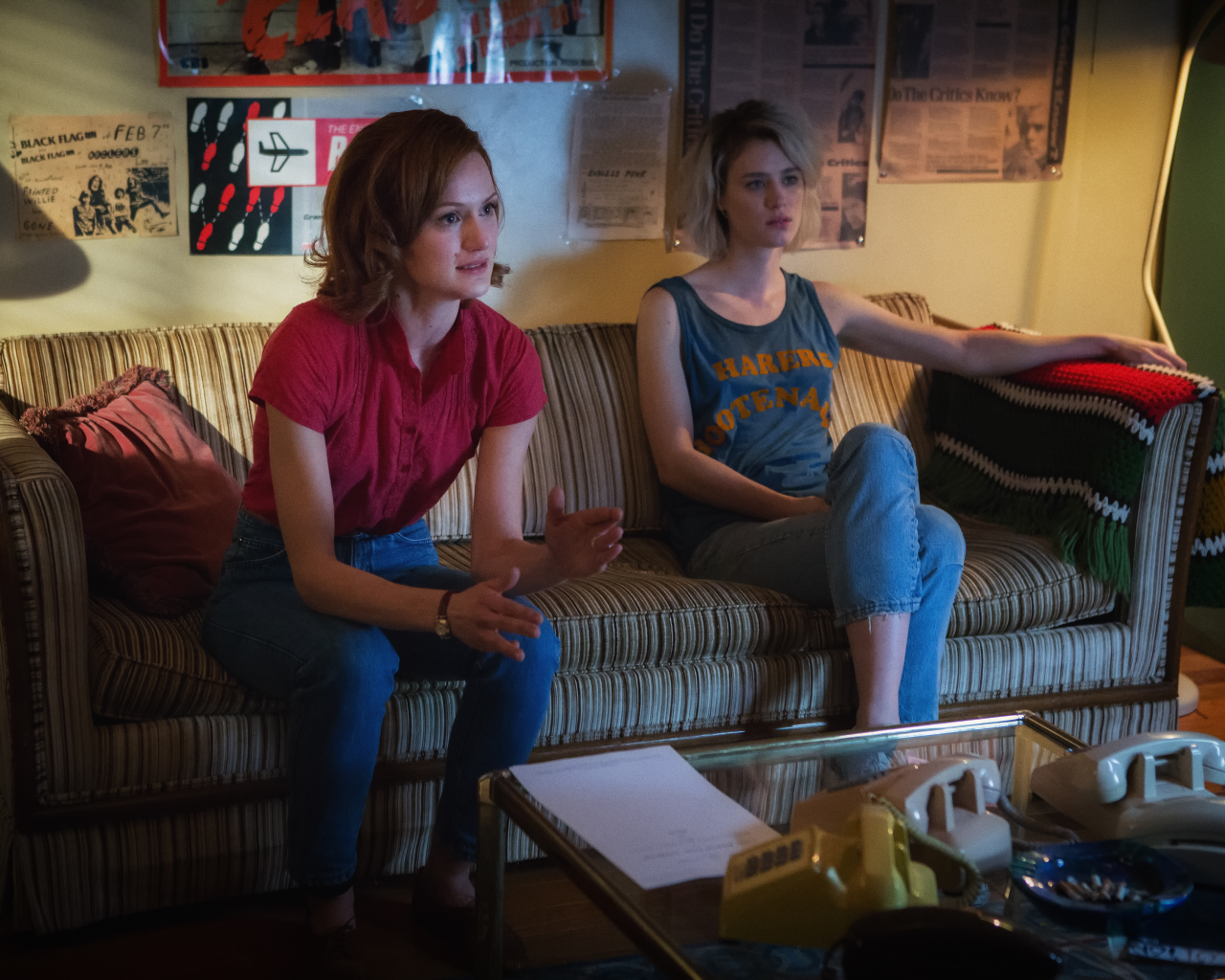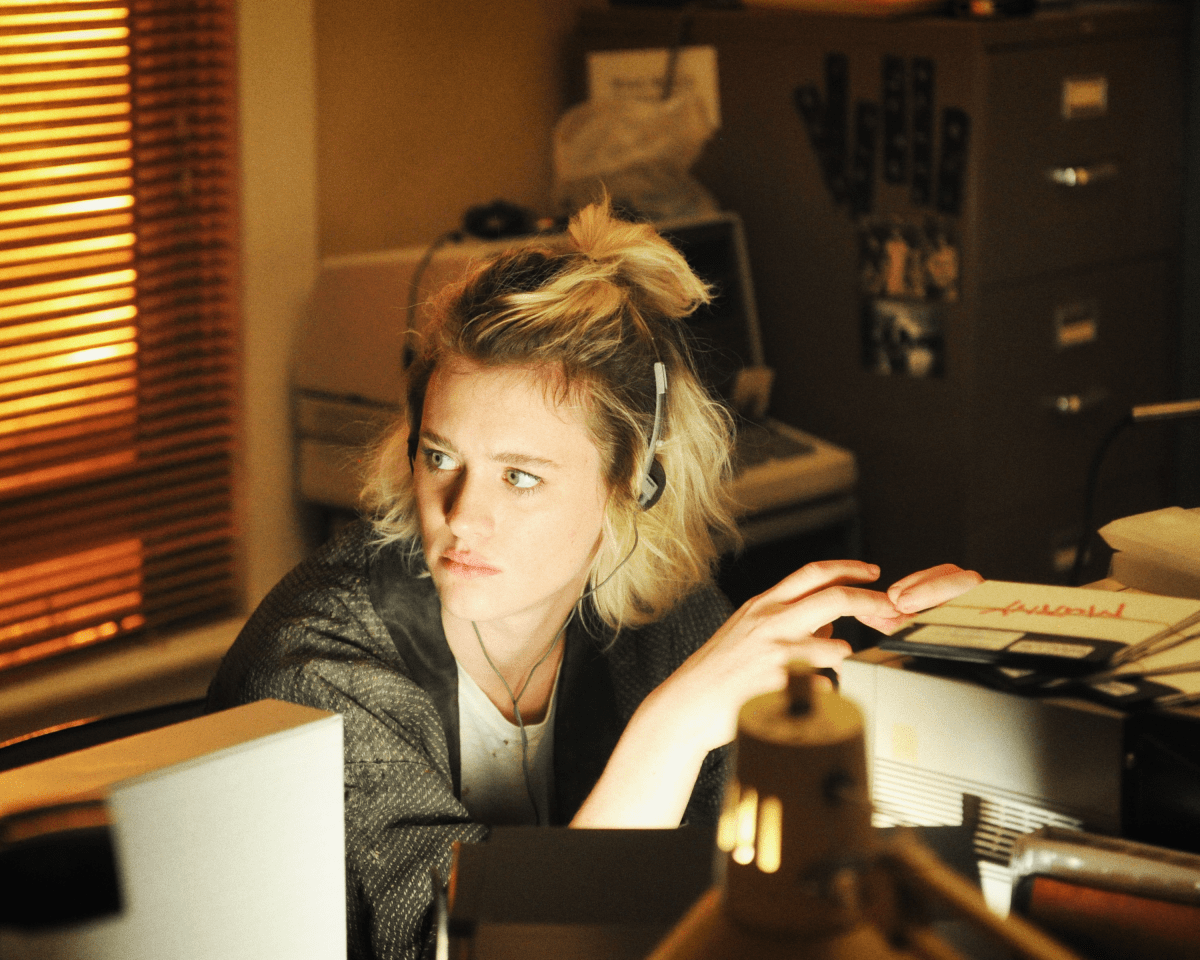Last summer, Halt and Catch Fire premiered on AMC and became a slow-burn hit for the network. Although it didn’t erupt out of the gate like Breaking Bad or Mad Men, Halt developed a loyal following, and did something that series with staying power have to do: it got better as it went along.
Back this Sunday for its second season, Halt has managed to get even better, and gone through some major changes. Specifically, Scoot McNairy’s Gordon and Lee Pace’s Joe are taking a step back, and Kerry Bishé Donna and Mackenzie Davis’s Cameron are taking center stage with a new focus on their start-up, Mutiny. Having watched the first 4 episodes of the new season, I can safely say they’ve become two of the most interesting and nuanced characters currently on TV. Executive Producer Melissa Bernstein (who is also behind quality cable series such as Rectify, Breaking Bad, and Better Call Saul) gave us a sneak peek at how the series have evolved and what to expect from season 2.
Lesley Coffin (TMS): When people say “producer,” that can mean a lot of different things. How involved are you in this series while it’s in production? Are you a producer who likes to be on set from start to finish?
Bernstein: I am. I am slightly obsessive-compulsive, so I feel I need to be on the ground in order to do my job. And honestly, I love the work and particularly on this show, because the cast and crew are so spectacular and so fun to be around. I just feel I’d be missing out on the fun if I weren’t around.

TMS: After the first season, did the producers make any changes based on how audiences and critics were reacting to the show when planning season 2?
Bernstein: I came up in the school of Vince Gilligan, so I don’t read a ton of reviews or reactions, because I think it can be a little dangerous in terms of listening to the characters and allowing the characters to drive the story. That feels like the most organic form of storytelling. So while I want to know people’s impressions, taking feedback and shifting the show in response to that is a line I’m not willing to cross.
But in terms of the world of technology, how fast it moves and shifts that can happen, we wanted the show to reflect that feeling. So we didn’t want to just tell the same story in season 2, we wanted it to evolve it in a way which felt organic to the world we are in. So season 2 is primarily set at Mutiny, so that change in and of itself presented a lot of new esthetic and stylistic opportunities, because Cardiff Electric was kind of built to be shot in more of a noir, ’70s conspiracy theory style, whereas Mutiny is an office in a house. The show looks brighter and there are high ceilings and it is more open, so people are hanging from the rafters and it seems to be bursting from the seams. It has a really young, energetic, frenetic feeling to it, compared to Cardiff Electric had a faded, corporate feeling.
So our palette for this season evolved to echo that shift, and the cinematic style evolved as well. So even though we are centered on the same characters, it feels very different. And Donna and Cameron are at the center of Mutiny, rather than the boys, so there is a shift in terms of character point of view as well. Our two female leads are the two running this company, so there is an inherent shift to focus more on them this season.

TMS: Did you know last season that the show would change so drastically?
Bernstein: When we initially brought the show to AMC, we talked about wanting to take some big leaps, and using the canvas of technology as a blueprint. So the same way technology changes drastically fast, our show has the same ability to change gears. When we first presented the characters, all we knew was that they were brilliant, all five of our leads. But we don’t know where they will end up in history. Are they the trendsetters, the rock stars, or are they the footnotes? And that was something we always wanted to play with, so making these changes in season 2 is a natural extension of that original plan for the series as a whole.
But the great benefit of doing a series is that you get to write to your strengths, and the opportunities you find along the way; and because Mackenzie and Kerry are such extraordinary talents, so smart and interested in the material, we got very excited about them, the same way we were excited about working with Lee and Scoot when we first cast them. And we realized, there is just as much story and opportunity to focus on our leading ladies are our leading men, and we want to do that. When you cast, it is a leap of faith, and we ended up hitting the lottery with ours.
TMS: What’s it been like shifting the point of view to two women?
Bernstein: I think there is a lot of genuine excitement about telling their story, and the writers were so enthusiastic about writing it. Part of the reason is the fact that Joe and Gordon had such a unique dynamic, which was not the most productive partnership because of their intrinsic lack of trust between them. And with Cameron and Donna, we were able to examine a whole different type of partnership, and one which is a lot more productive and collaborative, and ultimately one which is more respectful. And with that, we had a whole new set of challenges in terms of how to dramatize that partnership. We had the opportunity to look at a business relationship in a more nuanced way, which was thrilling for the characters, but also isn’t the kind of professional relationship you see on television that often.
I was looking forward to seeing something that hasn’t been exploited as much on TV. You constantly want to find fresh areas to explore and this is very much one.

TMS: How did the series come to your attention?
Bernstein: For this one, I read it when it a sample. Chris Rogers and Chris Cantwell wrote it as a spec script and I don’t think they ever thought it would go to series. They were feature writers at the time, trying their hand at television. They told me they downloaded the Breaking Bad pilot and thought “this is the TV script format.” But I read it and loved it, talked to Ben Davis at AMC, who shared my enthusiasm for it. And they bought the script, but not with my production company attached. Then, down the line they gave us an opportunity meet with them and convinced them to let us be their producers. It went into a development process at AMC and we worked with them on a couple of passes on the pilot and developing the bible for the show, which lays out season one’s story arcs and characters and what the series can encompass. And then AMC picked us up to pilot and finally series.
TMS: Considering your track record producing for TV, I would imagine you have a lot of opportunities now to find material and new talent to work with. What was it that personally interested you in this particular script and series?
Bernstein: For me, I want a project to be character first, and I want them to be flawed and real people. And I was really attracted to the characters they created. And then I really liked the setting and felt it had been untapped in series television. There are shows which have tried the 80s, but most do it with a wink at the audience and have fun at the era’s expense. But this felt really true to the era and the ethos of the ’80s permeates the story and characters. And I love the silicon prairie. Who knew what that looked like and what the lesser known tech companies were like? I loved how stark Cardiff Electric it seemed, while still having this strange, masculine energy.
TMS: What is your personal connection to the tech and computer world?
Bernstein: For me, I am not terribly tech savvy, but before I was a producer, I was in technology PR, so during the dot.com boom, I was representing technology companies as they were emerging. I worked in that before the bubble burst when it was just a frenzy, so I got to learn a lot about it and got to know a lot of the executives. So I bring an unusual knowledge and experience to the show, because it was well after the 80s, but it definitely gave me a sense of the personalities in the field and how these companies come together.
Halt and Catch Fire’s second season premieres this Sunday, June 1, on AMC.
Lesley Coffin is a New York transplant from the midwest. She is the New York-based writer/podcast editor for Filmoria and film contributor at The Interrobang. When not doing that, she’s writing books on classic Hollywood, including Lew Ayres: Hollywood’s Conscientious Objector and her new book Hitchcock’s Stars: Alfred Hitchcock and the Hollywood Studio System.
–Please make note of The Mary Sue’s general comment policy.–
Do you follow The Mary Sue on Twitter, Facebook, Tumblr, Pinterest, & Google +?









Published: May 29, 2015 10:00 am